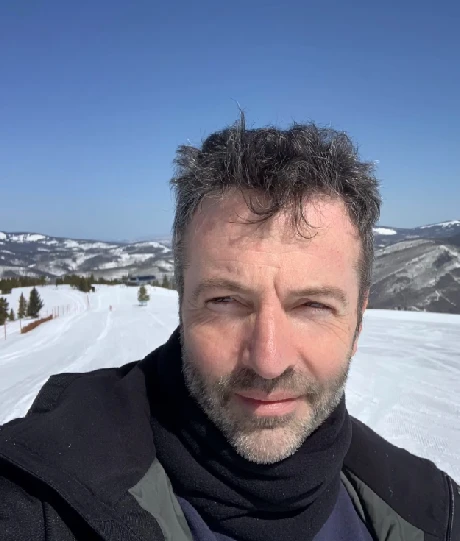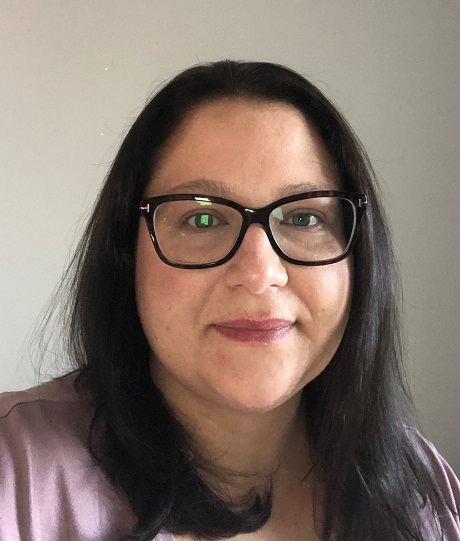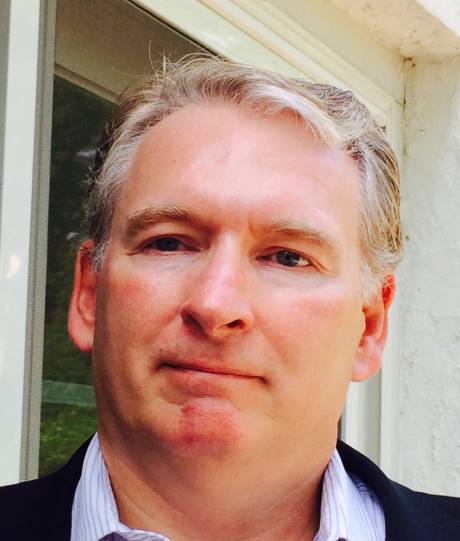Who we are?
The Industry Pharmacogenomics Working Group (I-PWG) was established in 2000 and is comprised of
functionally diverse members from pharmaceutical and biotechnology companies. The I-PWG is a
voluntary and informal association of pharmaceutical companies engaged in research in the science of pharmacogenomics. The group was initially established in response to regulatory requests for non-competitive information from industry about such research. The group provides information, sometimes in the form of publications in peer-reviewed journals, and sponsors educational and informational programs intended to promote a better public understanding of pharmacogenomic research. The group’s discussions, activities, and programs are open and transparent and are limited exclusively to
non-competitive matters. Topics include educational, informational, ethical, legal, and regulatory matters. Organizational and procedural rules have been adopted by the group and by the companies they represent.
The I-PWG follows closely the activities of the US Food and Drug Administration (FDA), European Medicines Evaluation Agency (EMEA), other regulators and policy groups to ensure that its activities are relevant to their programs and needs. Among other steps, the I-PWG seeks to engage these bodies in discussion and information sharing and asks their continued assistance in identifying non-competitive issues about which the group can provide information or other support.
The Industry Pharmacogenomics Working Group (I-PWG) was established in 2000 and is comprised of functionally diverse members from pharmaceutical and biotechnology companies. Our diverse membership is made up of those engaging in regulatory, statistical, technological , genomic, and biological research as well as operations. We engage pre-competitively to address emerging issues related to pharmacogenomics.
The I-PWG is a voluntary and informal association of pharmaceutical companies engaged in research in the science of pharmacogenomics. The group was initially established in response to regulatory requests for non-competitive information from industry about such research. The group provides information, sometimes in the form of publications in peer-reviewed journals, and sponsors educational and informational programs intended to promote a better public understanding of pharmacogenomic research. The group’s discussions, activities, and programs are open and transparent and are limited exclusively to non-competitive matters. Topics include educational, informational, ethical, legal, and regulatory matters. Organizational and procedural rules have been adopted by the group and by the companies they represent.
The I-PWG follows closely the activities of the US Food and Drug Administration (FDA), European Medicines Evaluation Agency (EMEA), other regulators and policy groups to ensure that its activities are relevant to their programs and needs. Among other steps, The I-PWG seeks to engage these bodies in discussion and information sharing and asks their continued assistance in identifying non-competitive issues about which the group can provide information or other support.
Organization
The group holds teleconferences at regular (monthly) intervals and aims to meet face-to-face annually. The activities are coordinated and administered by a Chair, selected annually from among the participants of the group. The Chair is generally rotated from one member company to another each year. Meeting summaries are available members in the Members Portal.
Each member company bears an equitable share of the group’s costs, including the costs of meetings
(excluding participant travel), teleconferences, and the costs of external legal and any other consultants. Apart from legal counsel, there is no immediate need for external consultants.
The group holds teleconferences at regular (monthly) intervals and meets aims to meet face-to-face annually. Smaller groups may draft materials for the group’s consideration. The activities are coordinated and administered by a Chair, selected annually from among the participants by the group. The Chair is generally rotated from one member company to another each year. Meeting summaries are available on our site .
Each member company bears an equitable share of the group’s costs, including the costs of meetings (excluding participant travel), teleconferences, and the costs of external legal and any other consultants. Apart from legal counsel, there is no immediate need for external consultants.
I-PWG Leadership
Meet our team
Co-Chairs

Karina Bienfait
Executive Director
Specimen Infrastructure and Informed Consent at Bristol Myers Squibb.
Dr. Bienfait is responsible for implementing and maintains processes and procedures related to the collection of biospecimens for pharmacogenomics and other future biomedical research. She overseas authoring of pharmacogenomic sections of protocols and pharmacogenomic informed consent forms (ICFs), assigning permissions to biospecimens based on ICF language, and tracking biospecimens in biorepository. Dr Bienfait manages all ICF negotiations with global health authorities, institutional review boards and ethics committees, and leads strategic efforts to facilitate genomic sample collection in global clinical trials. Dr. Bienfait completed an internship in Clinical Psychology at Nassau University Medical Center and a postdoctoral fellowship in Clinical Psychopharmacology in the Department of Psychiatry at UMDNJ-Robert Wood Johnson Medical School. She holds a Ph.D. in Clinical Psychology from St. John’s University and a B.A. in Psychology and French from New York University

Peter Shaw
Head
Clinical Pharmacogenetics
at Merck.
Dr. Shaw is an experienced scientist and collaborator with a deep knowledge of the strategic development and implementation of biomarker and genomic platforms throughout drug development. Prior to his tenures at BMS and Merch, Dr. Shaw was an assistant professor at the NYU Langone Medical Center. He holds a Ph.D. in Drug Metabolism form the University of Aberdeen and A B.S. in Biochemistry from the University of Wales, Cardiff.
Peter’s expertise is in the strategic development, analysis and use, of pharmacogenetic and pharmacogenomic data for decision making in clinical and preclinical drug development. Peter’s achievements and focus include: identification and validation of genomic biomarkers, implementation of in life genotyping pipelines, development of ethical processes and procedures to protect privacy and collect clinical samples, globally, for genomic research, generation of data for regulatory filings and drug labels. Peter has collaborated with many functional groups (clinical, discovery, regulatory, legal and privacy) in and across most major therapeutic areas (Oncology, Infectious Disease, Cardiovascular, Diabetes and Neuroscience), to enable integration and application of pharmacogenomics. In addition, Peter has developed large strategic external relationships with academic centers and biotechnology companies to promote R&D, as well as contributed to multiple pre-competitive consortia programs and trade organizations to promote education and knowledge of pharmacogenetics: iPWG, SAEC, ACRG, PhRMA, EFPIA. Peter has over twenty years of experience at Merck & Co., Inc. and Bristol Myers Squibb which has led to numerous publications and patents.
Specimen Infrastructure and Informed Consent at Bristol Myers Squibb.
Karina Bienfait, PhD is Executive Director of Specimen Infrastructure and Informed Consent within Global Biospecimen and Imaging Management at Bristol Myers Squibb (BMS). In this role, Karina oversees a team of leaders with subject matter expertise in informed consent, biobanking, specimen logistics, and specimen data and analytics. Since joining BMS, she has strategically transformed end-to-end consent operations for specimens for both protocol-related and future use testing. She has also overseen implementation of a state-of-the-art specimen management system, as well implemented policies and processes to ensure specimen oversight.
Prior to BMS, Karina was at Merck & Co., where she held positions of increasing responsibility within Clinical Pharmacogenomics and Clinical Specimen Management. Most recently, she was the head of Global Genomic Policy, Process and Compliance (GPPC), where was responsible for evaluating the impact of global genomic and biospecimen policies and laws/regulations on Merck’s research programs; developing Merck policies, processes and consent related to genomics and biobanking; and ensuring the compliant use of biospecimens. In this role, Karina also implemented routine genotyping of patients participating in Merck’s clinical trials to identify genetic predictors of drug response. She also served as the Merck representative to the Roundtable on Genomics and Precision Health of the National Academies of Sciences, Engineering and Medicine.
Karina completed an internship in Clinical Psychology at Nassau University Medical Center and a postdoctoral fellowship in Clinical Psychopharmacology in the Department of Psychiatry at Rutgers University – Robert Wood Johnson Medical School. She holds a PhD in Clinical Psychology from St. John’s University and a B.A. in Psychology and French from New York University.
Ph. D. 1987, University of Aberdeen, Scotland, (Pharmacology/Biochemistry).
B.Sc. (Hons) 1983, University of Wales, Cardiff College, (Biochemistry).
B.Sc. (Hons) 1983, University of Wales, Cardiff College, (Biochemistry).
Peter’s expertise is in the strategic development, analysis and use, of pharmacogenetic and pharmacogenomic data for decision making in clinical and preclinical drug development. Peter’s achievements and focus include: identification and validation of genomic biomarkers, implementation of in life genotyping pipelines, development of ethical processes and procedures to protect privacy and collect clinical samples, globally, for genomic research, generation of data for regulatory filings and drug labels. Peter has collaborated with many functional groups (clinical, discovery, regulatory, legal and privacy) in and across most major therapeutic areas (Oncology, Infectious Disease, Cardiovascular, Diabetes and Neuroscience), to enable integration and application of pharmacogenomics. In addition, Peter has developed large strategic external relationships with academic centers and biotechnology companies to promote R&D, as well as contributed to multiple pre-competitive consortia programs and trade organizations to promote education and knowledge of pharmacogenetics: iPWG, SAEC, ACRG, PhRMA, EFPIA. Peter has over twenty years of experience at Merck & Co., Inc. and Bristol Myers Squibb which has led to numerous publications and patents.

Adele Mitchell, Ph.D.
Principal and Consultant, Adele A Mitchell LLC Former Director, Head of Clinical Genetics, Biogen

Charlie Paulding, Ph.D.
Senior Director, Pharmacogenomics, Regeneron Pharmaceuticals, Inc.
Past Chairs
Jean-Claude Marshall
Michelle Penny
Sandra Prucka
Rebecca Blanchard
Ronald Salerno
Julie Friedman
Diane Barnes
Susan Ray
I-PWG Leadership
Active Task Forces
Past Task Forces
I-PWG Leadership
Meet our team
Co-Chairs

Karina Bienfait
Executive Director
Specimen Infrastructure and Informed Consent at Bristol Myers Squibb.
Dr. Bienfait is responsible for implementing and maintains processes and procedures related to the collection of biospecimens for pharmacogenomics and other future biomedical research. She overseas authoring of pharmacogenomic sections of protocols and pharmacogenomic informed consent forms (ICFs), assigning permissions to biospecimens based on ICF language, and tracking biospecimens in biorepository. Dr Bienfait manages all ICF negotiations with global health authorities, institutional review boards and ethics committees, and leads strategic efforts to facilitate genomic sample collection in global clinical trials. Dr. Bienfait completed an internship in Clinical Psychology at Nassau University Medical Center and a postdoctoral fellowship in Clinical Psychopharmacology in the Department of Psychiatry at UMDNJ-Robert Wood Johnson Medical School. She holds a Ph.D. in Clinical Psychology from St. John’s University and a B.A. in Psychology and French from New York University

Peter Shaw
Head
Clinical Pharmacogenetics
at Merck.
Dr. Shaw is an experienced scientist and collaborator with a deep knowledge of the strategic development and implementation of biomarker and genomic platforms throughout drug development. Prior to his tenures at BMS and Merch, Dr. Shaw was an assistant professor at the NYU Langone Medical Center. He holds a Ph.D. in Drug Metabolism form the University of Aberdeen and A B.S. in Biochemistry from the University of Wales, Cardiff.
Peter’s expertise is in the strategic development, analysis and use, of pharmacogenetic and pharmacogenomic data for decision making in clinical and preclinical drug development. Peter’s achievements and focus include: identification and validation of genomic biomarkers, implementation of in life genotyping pipelines, development of ethical processes and procedures to protect privacy and collect clinical samples, globally, for genomic research, generation of data for regulatory filings and drug labels. Peter has collaborated with many functional groups (clinical, discovery, regulatory, legal and privacy) in and across most major therapeutic areas (Oncology, Infectious Disease, Cardiovascular, Diabetes and Neuroscience), to enable integration and application of pharmacogenomics. In addition, Peter has developed large strategic external relationships with academic centers and biotechnology companies to promote R&D, as well as contributed to multiple pre-competitive consortia programs and trade organizations to promote education and knowledge of pharmacogenetics: iPWG, SAEC, ACRG, PhRMA, EFPIA. Peter has over twenty years of experience at Merck & Co., Inc. and Bristol Myers Squibb which has led to numerous publications and patents.
Specimen Infrastructure and Informed Consent at Bristol Myers Squibb.
Karina Bienfait, PhD is Executive Director of Specimen Infrastructure and Informed Consent within Global Biospecimen and Imaging Management at Bristol Myers Squibb (BMS). In this role, Karina oversees a team of leaders with subject matter expertise in informed consent, biobanking, specimen logistics, and specimen data and analytics. Since joining BMS, she has strategically transformed end-to-end consent operations for specimens for both protocol-related and future use testing. She has also overseen implementation of a state-of-the-art specimen management system, as well implemented policies and processes to ensure specimen oversight.
Prior to BMS, Karina was at Merck & Co., where she held positions of increasing responsibility within Clinical Pharmacogenomics and Clinical Specimen Management. Most recently, she was the head of Global Genomic Policy, Process and Compliance (GPPC), where was responsible for evaluating the impact of global genomic and biospecimen policies and laws/regulations on Merck’s research programs; developing Merck policies, processes and consent related to genomics and biobanking; and ensuring the compliant use of biospecimens. In this role, Karina also implemented routine genotyping of patients participating in Merck’s clinical trials to identify genetic predictors of drug response. She also served as the Merck representative to the Roundtable on Genomics and Precision Health of the National Academies of Sciences, Engineering and Medicine.
Karina completed an internship in Clinical Psychology at Nassau University Medical Center and a postdoctoral fellowship in Clinical Psychopharmacology in the Department of Psychiatry at Rutgers University – Robert Wood Johnson Medical School. She holds a PhD in Clinical Psychology from St. John’s University and a B.A. in Psychology and French from New York University.
Ph. D. 1987, University of Aberdeen, Scotland, (Pharmacology/Biochemistry).
B.Sc. (Hons) 1983, University of Wales, Cardiff College, (Biochemistry).
B.Sc. (Hons) 1983, University of Wales, Cardiff College, (Biochemistry).
Peter’s expertise is in the strategic development, analysis and use, of pharmacogenetic and pharmacogenomic data for decision making in clinical and preclinical drug development. Peter’s achievements and focus include: identification and validation of genomic biomarkers, implementation of in life genotyping pipelines, development of ethical processes and procedures to protect privacy and collect clinical samples, globally, for genomic research, generation of data for regulatory filings and drug labels. Peter has collaborated with many functional groups (clinical, discovery, regulatory, legal and privacy) in and across most major therapeutic areas (Oncology, Infectious Disease, Cardiovascular, Diabetes and Neuroscience), to enable integration and application of pharmacogenomics. In addition, Peter has developed large strategic external relationships with academic centers and biotechnology companies to promote R&D, as well as contributed to multiple pre-competitive consortia programs and trade organizations to promote education and knowledge of pharmacogenetics: iPWG, SAEC, ACRG, PhRMA, EFPIA. Peter has over twenty years of experience at Merck & Co., Inc. and Bristol Myers Squibb which has led to numerous publications and patents.

Adele Mitchell, Ph.D.
Principal and Consultant, Adele A Mitchell LLC Former Director, Head of Clinical Genetics, Biogen

Charlie Paulding, Ph.D.
Senior Director, Pharmacogenomics, Regeneron Pharmaceuticals, Inc.
Past Chairs
Jean-Claude Marshall
Michelle Penny
Sandra Prucka
Rebecca Blanchard
Ronald Salerno
Julie Friedman
Diane Barnes
Susan Ray
Active Task Forces
Activate Task Forces
The I-PWG Education Task Force was initiated to develop educational materials for investigators and IRBs/IECs
in order to optimize and streamline the implementation of pharmacogenomics in clinical trials.

Education & Communication
We will need to add blurb about the specific objectives of this task force

Regulatory
We will need to add blurb about the specific objectives of this task force

ADME
We will need to add blurb about the specific objectives of this task force
Past Task Forces
Past Task Forces
The I-PWG Education Task Force was initiated to develop educational materials for investigators and IRBs/IECs
in order to optimize and streamline the implementation of pharmacogenomics in clinical trials.

Coding

Harmonization

PG-PD




